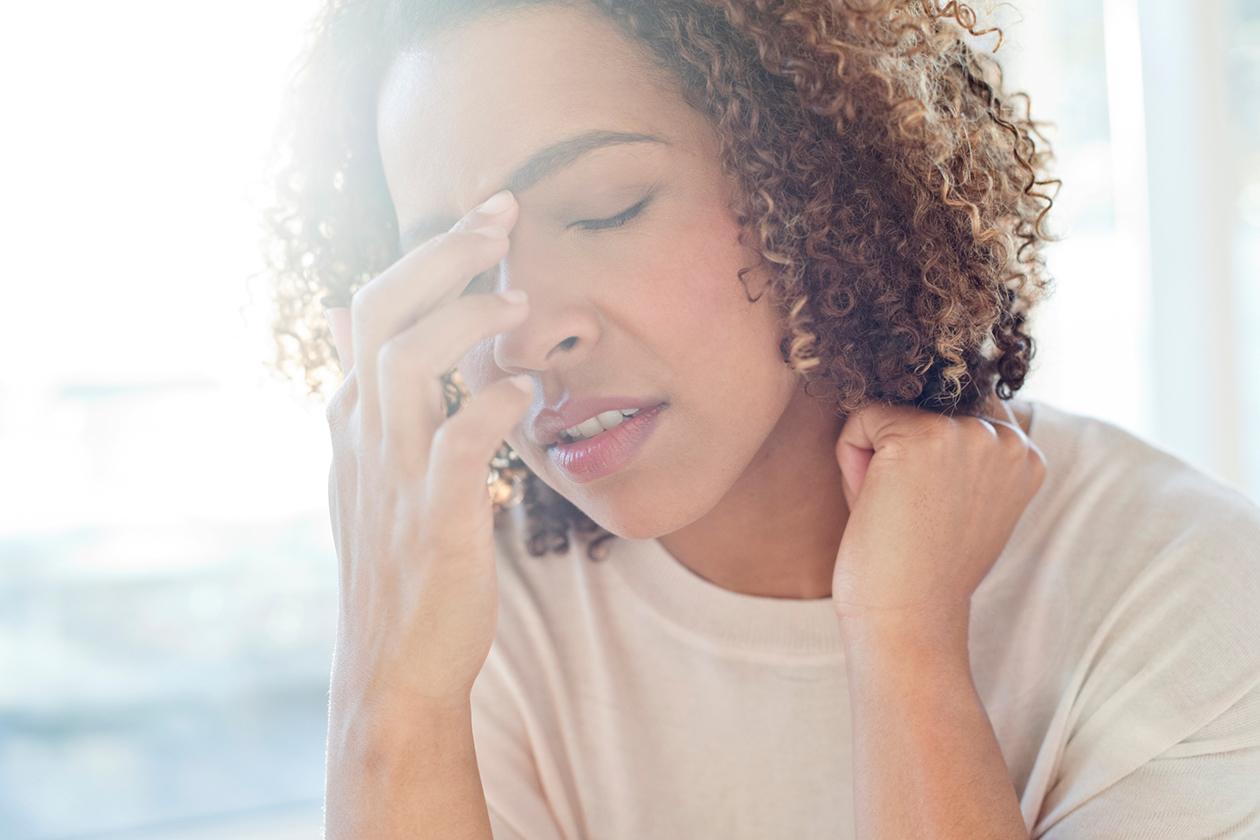How to Avoid Migraine Triggers

Photo credit: Getty Images
If you’ve ever had a migraine, you know it’s different from a typical tension headache. A migraine is a type of headache that comes with its own set of symptoms like nausea, sensitivity to light, sound or smells, extreme fatigue, and dizziness.
According to the Migraine Research Foundation, approximately 12 percent of people in the U.S. suffer from migraines, with nearly 90 percent of migraine sufferers having a family history of migraines. They are also more common in women than in men.
“A migraine can be debilitating and can impact daily activities, your family, and social life,” says neurologist Sait Ashina, MD, a headache specialist in the Comprehensive Headache Center within the Arnold-Warfield Pain Center at Beth Israel Deaconess Medical Center (BIDMC). “Unfortunately, a migraine often goes undiagnosed and undertreated.”
The exact cause or reason for migraines is still unknown, but what physicians can help you pinpoint are different triggers for your migraine.
“Triggers are what can set off the symptoms of a migraine headache, which is different than the mechanisms of the head pain,” Ashina says. “Triggers are usually individualized—what could bring on a migraine in one person could not be the case in another person.”
In order to determine and subsequently avoid migraine triggers, Ashina suggests keeping a headache diary. “Your doctor is going to want to know what you did or ate or how you felt right before a migraine attack,” he says. “By tracking these occurrences and any details you remember ahead of time, your doctor will be able to find patterns that will guide an individualized treatment plan.”
The American Headache Society offers different resources for headache diaries. There are also a variety of mobile apps available. “List out each migraine, when it happened, how long it lasted, and what could have triggered it,” Ashina says.
Some of the most common migraine triggers and remedies include:
- Food and beverages. Chocolate, cheese, citrus fruits, processed meats, artificial sweeteners, soda, beer, and wine are all common triggers. Work with your doctor to alter your diet if certain foods or beverages are causing your migraines.
- Caffeine. Caffeine can sometimes help relieve symptoms, but high consumption can also lead to rebound headaches. Your doctor can help moderate your caffeine consumption based on your headache diary.
- Fasting, dieting, and dehydration. Don’t skip meals and drink plenty of water daily.
- Changes in weather. Humidity, heat, extreme high or low temperatures, and atmospheric pressure can bring on a migraine. Stay hydrated in extreme heat and avoid being outdoors on particularly cold or windy days.
- Sleep deprivation. Create and stick to a regular sleeping pattern.
- Light exposure. Try to avoid fluorescent light (common in a lot of work areas and offices) and wear sunglasses in bright light. A blue light filter for digital screens can help, as well.
- Odor exposure. Perfume, cleaning products, paint products, and cigarette smoke are all known to cause migraines. Avoid these triggers when possible.
- Changes to hormones. Especially for women, hormonal changes can affect migraines. Your doctor may prescribe non-steroidal, anti-inflammatory medications or other anti-migraine medication to use before and during your menstrual cycle.
“Your headache diary will be your doctor’s best resource for avoiding any of these triggers,” Ashina says. “By controlling what you can, you may reduce the frequency and severity of your headaches.”
For more information about the services offered at the Pain Center at BIDMC, visit bidmc.org.
This is a paid partnership between Beth Israel Deaconess Medical Center and Boston Magazine


